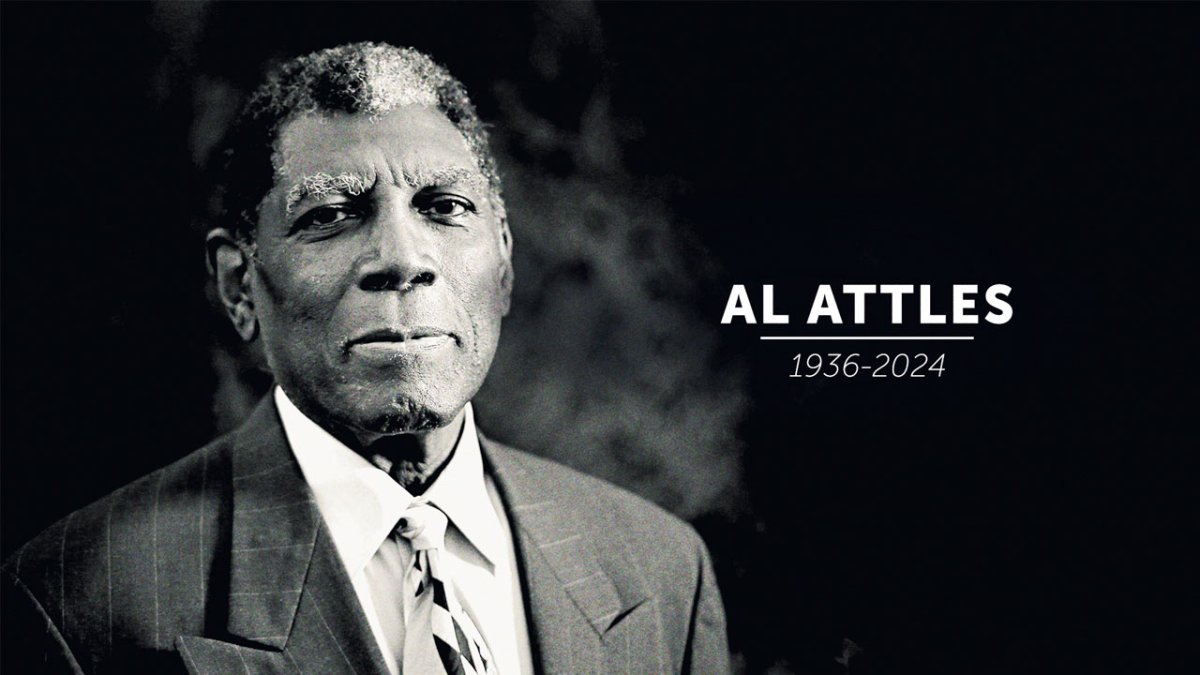For a man who made sporting history, who led one of the sport’s greatest underdogs to a resounding championship triumph, Al Attles He blew his trumpet so softly that you could hardly see him. You had to lean over to have a chance of hearing him.
Attles joked about the night in 1962 when he and San Francisco Warriors teammate Wilt Chamberlain scored 117 points. It was a joke because Chamberlain was responsible for 100 of those points.
What Attles doesn’t say is that his 17 points came on eight field goal attempts and one free throw. He made all of his shots.
This modesty was typical of Al Attles, and he never lost it, no matter how great he reached.
Attles died Tuesday, the Warriors announced. He was 87 (birth date 11/7/36). It is entirely conceivable that during his final weeks in hospice care, every waking moment was spent thinking about those around him and not a single second about himself.
And this man had so many qualities.
Attles grew up in Newark, New Jersey, before leaving in 1956 to attend North Carolina A&T, a historically black college, where he earned bachelor’s degrees in physical education and history, followed by a master’s degree in curriculum and teaching. He also played basketball well enough to be drafted by the Philadelphia Warriors. He was selected in the fifth round, 39th overall, of the 1960 NBA draft.
No. Attles, at 23, decided he’d rather coach the game than play it. For real. His plan was to ignore the NBA call and become a gym teacher. The Warriors persisted. Attles reluctantly decided he’d show up for training camp.
“The salary was too high,” he told me many years ago. “Nearly $6,000 a year.”
Although Attles was not a great shooter, he did everything else well. He could run, pass, and rebound exceptionally well for someone who stood six feet tall and weighed just under 180 pounds. He defended with the zeal of a hungry shark. That, combined with his innate tenacity and his rumbling bass voice, made him seem a foot taller and 100 pounds heavier.
Attles was slow to anger but quick to flare up once his fuse was lit. It wasn’t long before his self-defense skills spread throughout the league, earning him his nickname: The Destroyer.
Attles lasted nine seasons as a player before adding another job in 10th grade. He would continue to play for the Warriors but would also serve as an assistant coach. This only lasted one year, as in the 1969-70 season he was appointed head coach while he was still an active player. This was less than four years after the Boston Celtics made Bill Russell the NBA’s first black head coach in 1966.
Attles’ most incredible feat came five years later when, in his words, a Hall of Famer named Rick Barry and a few all-time great winners “carried” him to a championship.
In 1974-75, the Warriors, under Attles, eliminated the Seattle SuperSonics and Chicago Bulls to reach the NBA Finals against the Washington Bullets. Golden State’s 48 wins tied the Western Conference best, while Washington’s 60 wins tied Boston’s best record in the league.
The Bullets were the heavy favorites, but the Warriors pulled off a dramatic comeback to win Game 1 in Washington. They won Game 2 at the Cow Palace because the Oakland Coliseum Arena, which wasn’t expecting any postseason games, had booked the Ice Follies. The Warriors won Game 3 at the Cow Palace, then returned to Washington and, with another comeback in the fourth quarter, won Game 4 and the series.
In a Finals series that featured two black coaches for the first time (the other being Washington’s KC Jones), Attles and the Warriors pulled off the most surprising sweep in NBA history. And nothing in 49 years has come close to matching that result in terms of upsets.
Attles attributed his good fortune to having a team that was committed to winning. He praised Barry’s leadership, the courage of Charles Johnson and Clifford Ray, George Johnson and Butch Beard, the skills of youngsters Jamaal Wilkes and Derrek Dickey, the presence of veterans Jeff Mullins and Bill Bridges, assistant coach Joe Roberts and the fact that Franklin Mieuli was the owner of the team.
Everyone except himself.
It would be another 40 years before the Warriors won another championship, and when it happened in 2015, Attles still represented the franchise. From player to coach, from general manager to community ambassador, he remained loyal to his turf. A great basketball player but a kind and wonderful human being.
Attles spent more than 60 years with the Warriors, making him their most enduring legend. After his No. 16 was retired and elevated to Oracle Arena and then Chase Center, Attles often said, “Somebody had to pay them to put me up there with those guys.” It was absurdity delivered with conviction.
“Those guys” are Nate Thurmond, Tom Meschery, Chris Mullin, Barry and Chamberlain. All but Meschery have been enshrined in the Naismith Hall of Famer – just like Attles.
Attles is inducted twiceIf you let him tell his story, you would never know it.

